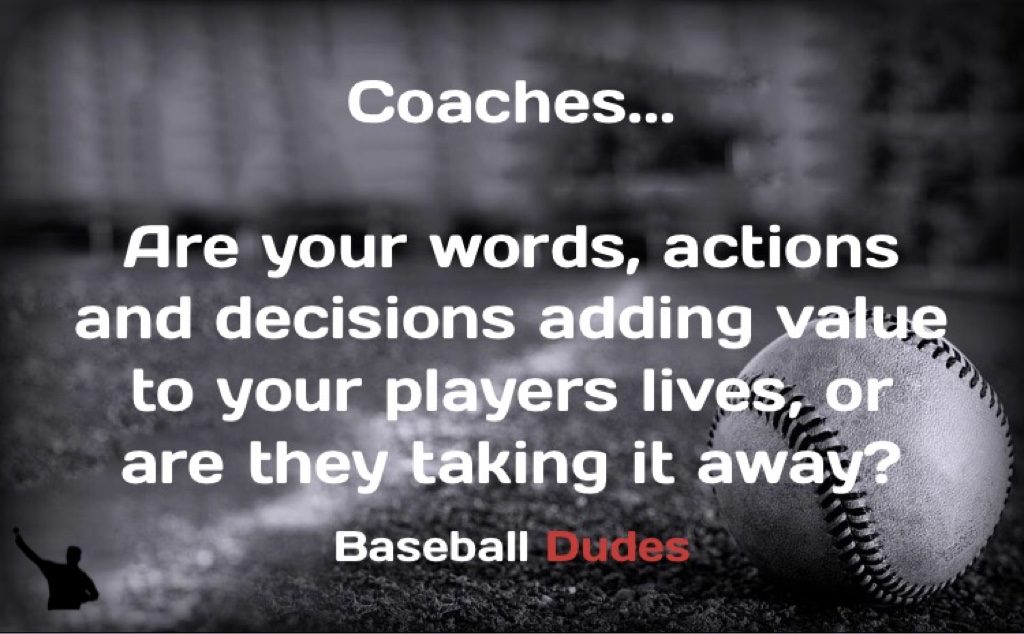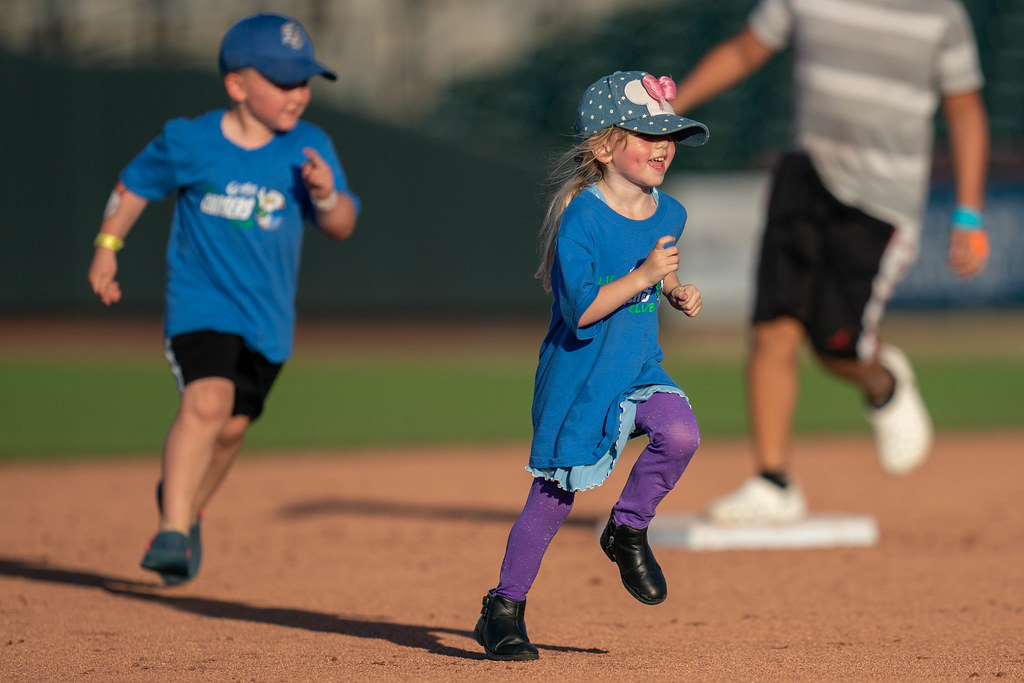As we step onto the baseball field, we’re not just coaching a game; we’re molding the character of our future. As mentors and coaches, we have the honor of instilling values such as sportsmanship and respect in our young athletes—values that will benefit them far beyond the baseball field. Let’s discuss how we can accomplish this.
Summary: Cultivating Sportsmanship in Youth Baseball
Understanding the significance of sportsmanship in youth baseball and how it affects players’ futures.
Recognizing the obstacles encountered when instructing sportsmanship to young athletes.
Effective methods and exercises that coaches can utilize to cultivate a culture of respect and teamwork.
Dealing with victories and defeats gracefully to impart important life lessons.
Real-world success stories that demonstrate the transformative power of sportsmanship training.
Most importantly, keep in mind that as a coach, you have a strong ability to influence young minds. Your actions and words on the field can have a lasting impact, so make every interaction meaningful.
The Importance of Respect in Youth Baseball
In youth baseball, respect is the bedrock of a healthy team culture. It goes beyond merely adhering to the rules; it involves cherishing the game, your fellow players, and your adversaries. Respect cultivates a passion for the game that motivates players to return every season.

Developing Personal Traits On and Off the Pitch
Baseball is not simply a sport. It’s a medium for imparting life skills that young athletes will retain for the rest of their lives. Through baseball, we can instruct them to be accountable for their actions, to back their team members, and to acknowledge the endeavors of their rivals. These teachings are as crucial as batting averages and ERA.
Why Teaching Respect Matters
Using baseball as a vehicle to teach respect can lead to better teamwork, better communication, and a more enjoyable experience for everyone involved. But the benefits don’t stop there. Players who learn respect on the field often become leaders off the field, in the classroom, and in their future careers.
Understanding the Difficulties of Teaching Sportsmanship
Any coach can tell you that teaching sportsmanship is not a walk in the park. We live in a society that often places winning on a pedestal above everything else. However, by identifying these obstacles, we can devise plans to tackle them.
The need to be victorious can sometimes overshadow the necessity of playing fairly.
Emotions can get the best of us, and respect can sometimes be forgotten in the heat of the moment.
Not all players are raised in environments where the importance of sportsmanship is stressed.
Despite these challenges, we can use every practice and every game as a chance to learn and grow.
Typical Obstacles in Imparting Sportsmanship
The “victory-at-all-expenses” mentality that is often found in competitive youth sports is one of the most difficult issues we encounter. This can result in poor sportsmanship, such as disputing with umpires or not shaking hands after a match.
Defeating The “Victory is Everything” Mindset
We, as coaches, are the first step in defeating this mindset. We must show our players that sportsmanship is more important than victory and lead by example. When our players see us treating everyone with respect, no matter the score, they will understand what is truly important in sports.
How Coaches Can Foster Respect
So, how can we achieve this? Let’s break it down into manageable steps. Firstly, always show respect to your players, and insist they do the same with each other, the opposition, and the officials. Then, applaud acts of good sportsmanship as much as, if not more than, victories. Lastly, set clear consequences for unsportsmanlike behavior and be consistent in enforcing them.
Another crucial aspect to consider is communication. Regularly talk to your team about the importance of respect and what it looks like. And remember to listen to your players’ viewpoints—they frequently have useful ideas on how the team can get better.
For instance, I once had a player who would become frustrated and throw his bat after striking out. Instead of punishing him, we discussed how his actions were affecting the team’s morale. We worked on techniques to control his emotions, and soon, his behavior improved—along with his hitting.
Setting the Standard: Role Modeling
As coaches, we must be role models. If we argue with umpires or criticize players publicly, we’re sending a message that such behavior is okay. Instead, we should show patience, respect, and positivity, even in challenging situations.
Regardless of the game’s outcome, always make it a point to shake hands with the other team and their coaches.
Even when you’re questioning a call, speak respectfully to the umpires.
Encourage your players to cheer each other on, whether they’re celebrating a good play or helping a teammate recover from a mistake.
Keep in mind that your players are always watching and learning from you. Make sure they’re picking up the right lessons.
Techniques for Positive Reinforcement
Positive reinforcement can be a great way to encourage good behavior. If you see a player showing good sportsmanship, make sure to make a big deal out of it. Point out what they did to the rest of the team, and explain why it was a good thing. This will not only reward the player for their good behavior, but it will also show the rest of the team what they should be doing.
Here’s a method that is incredibly effective:
Publicly praise: During practice and games, make sure to publicly acknowledge good sportsmanship.
Highlight the behavior: Use team meetings as a platform to share examples of sportsmanship, reinforcing positive actions.
Recognition from peers: Allow players to nominate their teammates for a ‘sportsmanship of the week’ award.
With consistent recognition and rewards for respectful behavior, you can foster a team culture that values sportsmanship on the same level as skill and strategy.
Building a Culture of Shared Respect
Building a culture of shared respect begins with a clear, mutual understanding of what respect looks like in action. It’s more than just not talking back to the umpire; it’s about embodying a spirit of camaraderie and appreciation for the game and everyone involved. For more insights, explore these positive coaching strategies that can help in building player rapport and a respectful team culture.
Teamwork-Building Training Drills
Teamwork is the foundation of a baseball team and a key part of sportsmanship. Drills that focus on the team can help to create a feeling of unity and shared responsibility.
Exercises should be created in a way that

they demand teamwork and communication. For instance, relay races that require players to collaborate to finish a task, or fielding exercises that require players to shout out and synchronize their actions to catch fly balls.
Teamwork Building Exercises
Teamwork is a key component of baseball, as the game necessitates ongoing communication and collaboration. Include exercises that require players to work together to solve a problem or reach a shared objective. This could involve challenges such as escape rooms or team-building activities that can be conducted on or off the field.
Team scenarios: Create situations where players have to think strategically and collaborate to solve problems.
Team competitions: Set up contests that can only be won by working together, not by individual achievement.
These exercises not only enhance baseball abilities but also instruct players to depend on and have faith in each other, which is the heart of good sportsmanship.
Building Trust and Communication
Trust and communication are the building blocks of any successful team. Activities that target these areas can help to strengthen the connections that make a team work well together. Trust falls, blindfolded direction games, and paired communication exercises where one player has to describe a picture or pattern to their teammate without showing it to them, are all effective ways to develop these skills.
Gracefully Accepting Wins and Losses
Set the example: Demonstrate how to take both wins and losses in stride.
Post-match reflections: Talk about what went right and wrong after each match, focusing on sportsmanship as well as gameplay.
Exercises in empathy: Help players understand the game from their opponents’ point of view, to foster more respect.
Teaching players to accept both wins and losses gracefully is arguably one of the most important aspects of sportsmanship. It’s about striking the balance between celebrating success and acknowledging the efforts of the opposition.
Instilling Respectful Winning Attitudes in Athletes
While winning is thrilling, it’s crucial to win with respect. Encourage your athletes to celebrate without boasting, to recognize the opposition’s effort, and to always conclude a game with a handshake and a ‘well played,’ irrespective of the result.
Dealing with Difficult Defeats
Defeats can be hard, particularly for young sportspeople. Encourage them to seek the lessons in every defeat and to keep a positive outlook. Remind them that every fantastic player has been defeated in games, but what distinguishes the best is their reaction to those defeats.
Success Stories: The Power of Respect
I want to share a story that really shows the power of respect. There was a young player who had trouble with sportsmanship. He would often argue with the umpires and show his frustration on the field. After putting in place a program focused on respect and teamwork, this player began to change. He started to support his teammates more, communicated better on the field, and even started to compliment his opponents on good plays. This change had a ripple effect on the entire team, leading to a more positive and successful season.
Actual Instances of Constructive Transformation
One more instance is of a team that was infamous for its bad sportsmanship. However, the coaches made a determined effort to stress on respect, and the team began to change for the better. They transformed from being the team that no one wanted to compete with to the team that was respected by all, irrespective of the result of the match.
The Impact of Respect Training on Teams
Teams that have undergone respect training usually experience not only improvements in behavior, but also in their performance. Players learn how to cooperate more efficiently, communicate more effectively, and support each other, all of which can result in more victories on the field.
Moving Forward: Empowering Your Team
Now that we’ve discussed the significance of sportsmanship and respect, and shared some methods for promoting these values, it’s time to apply these concepts. Begin by establishing clear expectations with your team, and then include the drills and exercises we’ve discussed in your regular practices.
Consider the tale of Sam, who was able to significantly improve his batting average thanks to his coach and a dedicated program. This is the level of success you can attain with your players. If you want to learn more about how to use these strategies to truly transform your players’ game, check out the Beginner Hitting Program and begin building your coaching legacy today.
As you continue to foster a culture of respect and sportsmanship within your team, you’ll notice improvements not just on the field, but also in your players’ character. And that’s the true reward of coaching youth baseball.

Putting What You’ve Learned Into Practice
Now that you’re armed with these tips and tricks, you’re ready to take your team’s sportsmanship to the next level. Begin by establishing clear rules for how players should act and behave during practices and games. It’s important to stick to these rules and enforce them consistently. Encourage your players to keep each other in check and support them as they develop and learn. For more focused guidance, consider exploring techniques to boost kids’ in-game concentration skills.
Then, incorporate respect and sportsmanship into your training exercises. Make these principles as important as batting and catching. Immediately reward good behavior, and use unsportsmanlike behavior as opportunities to teach rather than just penalize. Keep in mind, the aim is to develop character, not just to win games.
Lastly, be transparent with parents and guardians about your sportsmanship objectives. They are your partners in this endeavor and can emphasize these principles at home. Share with them the vision of the well-rounded individuals you’re collectively working to cultivate through the wonderful game of baseball.
Consider the case of a team that had difficulties with teamwork and respect. After the coach introduced structured team-building exercises and publicly acknowledged sportsmanlike behavior, the players began to exhibit a greater appreciation for mutual respect. The outcome? Better communication on the field, fewer disagreements, and a stronger team spirit that led to a successful season. This is the transformative effect of purposeful sportsmanship training.
Now, it’s time to move forward. Implement these principles and observe your players develop not only in their sports skills but also in their character. As they learn to respect each other, their adversaries, and the game itself, they will become genuine representatives of youth baseball.
Discover More: Hitting Program for Beginners
Don’t stop here if you’re prepared to elevate your coaching and truly make an impact in the lives of your players. A plethora of information and resources are at your disposal to help you steer your players towards their maximum potential, both on the field and off.
The Beginner Hitting Program is a fantastic resource that provides a well-rounded approach to developing young hitters. It doesn’t just focus on the technical aspects of swinging a bat, but also nurtures the overall player, including their attitude towards sportsmanship and respect.
Master drills that not only enhance skill but also build character.
Gain knowledge from seasoned coaches who have effectively improved their teams.
Uncover methods to assist your players in managing success and failure with dignity.
By utilizing these tools, you can assist your players in realizing their maximum potential. So, what are you waiting for? Begin your journey by exploring the Beginner Hitting Program today.
Common Questions
If you’re about to start teaching sportsmanship and respect to your youth baseball team, you might have a few questions. To help you out, here are some answers to the most frequently asked questions about this important part of coaching.
What Is The Essence Of Sportsmanship?
Sportsmanship is all about respecting your teammates, opponents, and officials; playing fair; being honest; working as a team; and knowing how to graciously win and lose. By focusing on these values in your coaching, you can help your players develop a genuine passion for the game and a profound respect for everyone who participates in it.
What are the best ways for coaches to discipline unsportsmanlike behavior?
The best way to discipline effectively is to clearly communicate what is expected and what the consequences are. If unsportsmanlike behavior happens, address it right away and use it as a learning opportunity. Be consistent—hold all players to the same standards. Encourage them to reflect on their actions and understand how their behavior affects the team and the game.
What are some easy ways to boost respect among team members?
Boosting respect among team members can be done quickly by setting the right example. Show respect in all your dealings and demand the same from your players. Create a culture where everyone feels free to voice their opinions and listens to others. Highlight instances of sportsmanship, and make respect a common theme in team talks.
How Can You Tell If Sportsmanship Is Getting Better?
You can tell if sportsmanship is getting better by watching for changes in how players act during practices and games. You might see more positive interactions, fewer conflicts, and better handling of tough situations. For a deeper understanding, consider exploring positive coaching strategies that contribute to building player rapport and sportsmanship.
Does Respect Training Boost Sports Performance?
Without a doubt. Respect training can foster better team relationships, heightened concentration, and a more upbeat attitude—all of which can greatly improve sports performance. When players feel valued and are part of a nurturing team atmosphere, they are more likely to play to their maximum ability.
Leave a Reply